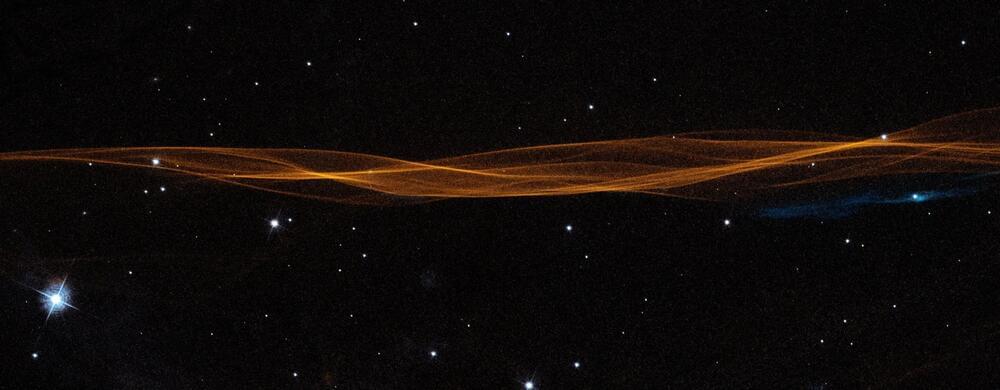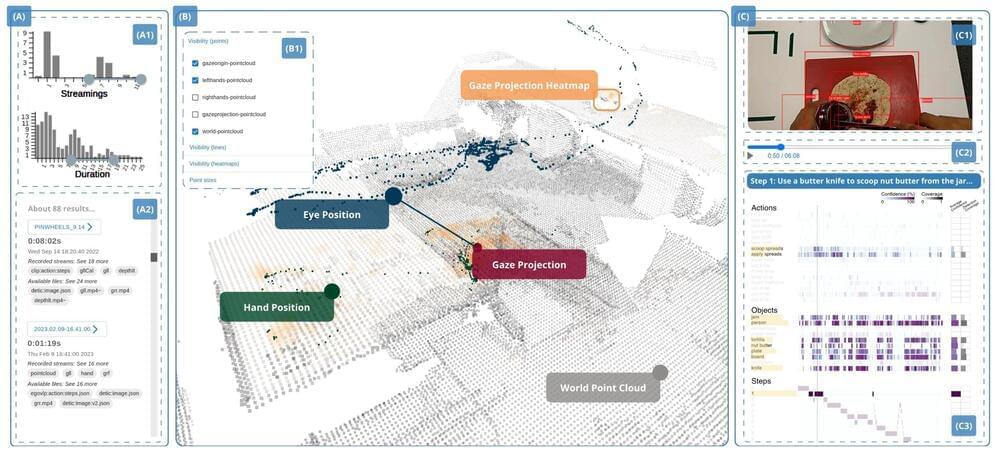Though a doomed star exploded some 20,000 years ago, its tattered remnants continue racing into space at breakneck speeds—and NASA’s Hubble Space Telescope has caught the action.
The nebula, called the Cygnus Loop, forms a bubble-like shape that is about 120 light-years in diameter. The distance to its center is approximately 2,600 light-years. The entire nebula has a width of six full moons as seen on the sky.
Astronomers used Hubble to zoom into a very small slice of the leading edge of this expanding supernova bubble, where the supernova blast wave plows into surrounding material in space. Hubble images taken from 2001 to 2020 clearly demonstrate how the remnant’s shock front has expanded over time, and they used the crisp images to clock its speed.





